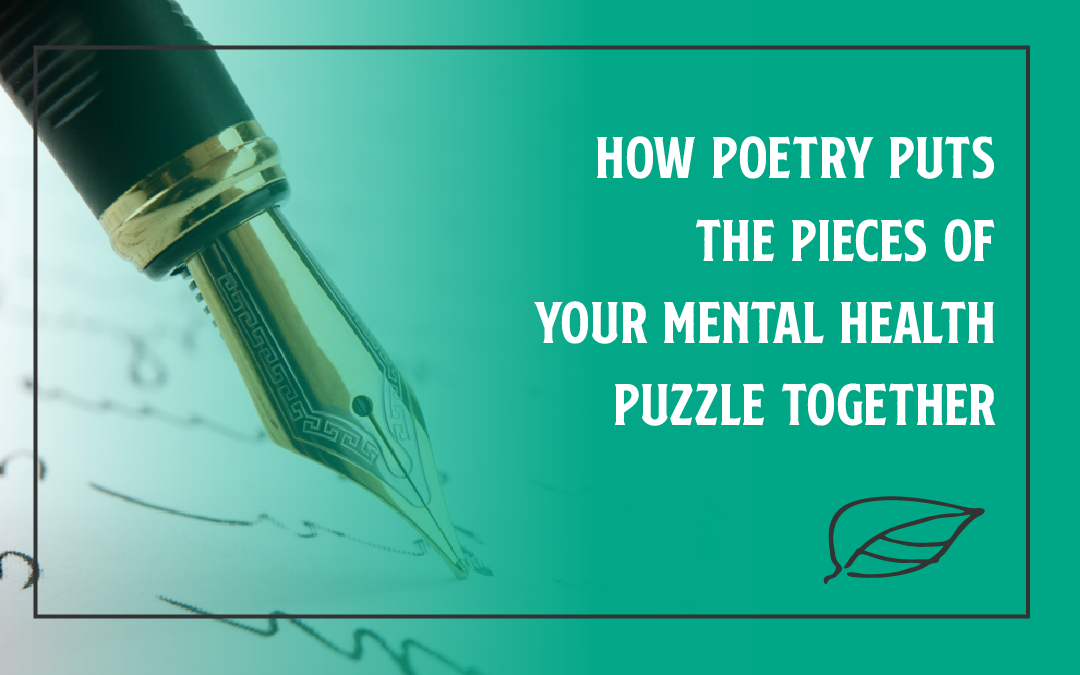In the constant noise of modern life, finding moments of quiet reflection can be difficult. Poetry acts as a peaceful sanctuary, a place to find clarity among the confusion. Words have power. Our inner feelings? They can be totally changed by this. So, how does the art of writing poetry piece together the intricate puzzle known as mental health? Get ready—this is going to be huge. Get ready for a big change.
The Therapeutic Craft of Poetry
Writing poetry is akin to crafting a personalized balm for your emotional well-being. Many individuals have discovered that pouring their sentiments onto a blank page can unpack mental burdens making it easier to cope with challenges. Here are specific advantages that one may gain from writing poetry:
- Emotional Expression: Poetry equips us with the tools to articulate feelings—those profound, often complex emotions that might otherwise remain buried. It lets us show our feelings—joy, sorrow, hope, fear—with structure and creativity.
- Reflection and Clarity: Engaging in this art form encourages introspection. Putting our thoughts on paper—it’s amazing how often that uncovers ideas we didn’t even know we had! Poetry makes sense of the mess.
- Stress Relief: Writing can serve as a cathartic release. Stress and anxiety? Writing poetry could help. That’s what the data says. It’s like hitting the refresh button on your mind.
- Enhanced Understanding: Writing and reading poetry is a journey inward. Using words to understand ourselves is like peeling back layers of an onion; each layer reveals something new and often unexpected. Self-acceptance and empathy go hand in hand. Better emotional health is the result.
Building Emotional Resilience
When we discuss mental health, it’s impossible to ignore the significance of emotional health. Creative expression through poetry strengthens your ability to handle life’s challenges; it’s a surprising benefit of the art form. Here’s what makes poetry a valuable ally on this front:
- Empowerment through Language: The act of writing verse is surprisingly freeing. Facing this head-on will make you tougher. Prepare to be shocked by your own power. It builds character. It lets the writer feel in charge of their story. You’re not just a passenger; you’re the driver, steering through turbulent terrains with words.
- Community and Connection: Sharing poetry can lead to bonding experiences. Sharing poems, whether in workshops, at open mics, or online, helps poets connect and feel good about their work. Feeling alone is a big problem for people with mental health issues; this helps.
- Coping Strategies: Poetry can function as an act of self-soothing. It’s like mindfulness; it anchors you to the here and now, pushing away those pesky overthinking habits. Let the music of words wash over you; it’s incredibly relaxing.
Turning Pain into Power
Let’s not kid ourselves; the road to mental wellness is often riddled with challenges. We learn from poetry how to take our struggles and turn them into something positive. Pain can become strength. This could really make a difference; the effects will be substantial.
- Narrative Therapy: Think of poetry as a personal journal, but more powerful. Life throws curveballs, but you’ll learn from them. It’s a chance to find meaning where there was only confusion. Taking control of their own story, they transform from victims to survivors who flourish. They are empowered.
- Mindful Awareness: Mindfulness grows as we write poems; it’s a natural result. Being present is a direct result of this. We accept our feelings; we don’t judge them. Embracing both light and shadow fosters emotional maturity.
- Artistry as Advocacy: Society’s rules, the stigma around mental illness, and life’s tough spots—poems can tackle them all. Poetry can help. Mental health stigma? Compassion? Yeah, that, and a good dose of understanding—that’ll do it. Let’s use them. Openness is key.

Conclusion
Think about how poetry uses few words to express a lot. That’s its strength—handling complexity with grace. Feeling overwhelmed? Try writing a poem. Understanding yourself and the world becomes simpler when you learn to process your emotions. Personal growth and a fresh outlook? It does both things. Unexpected friendships can blossom from common ground. Prepare to be blown away by the people you’ll meet. You’d be surprised how often a good old-fashioned pen and paper can help you work through even the most complicated problems life throws your way. Think about it – sometimes the simplest tools are the most effective. So, the next time life feels like a jigsaw puzzle with missing pieces, consider reaching for your notebook. After all, the words of your heart are waiting to dance on the page—translating chaos into art, one stanza at a time.

